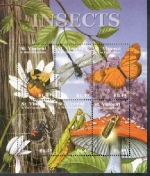Two articles published recently in the journal Science have shown that low levels of neonicotinoid pesticides can significantly affect bee colonies. Faced with this new evidence, the European Food Safety Authority was forced to review its risk assessment procedures for the effects on bee health of pesticides and insecticides, and it has now proposed a major overhaul. According to EFSA: "several exposure routes – intermittent and prolonged exposure of adult bees, exposure through inhalation and the exposure of larvae – are not currently evaluated in laboratory tests, and the effects of 'sub-lethal' doses of pesticides are not covered fully." Alyn Smith MSP, of the European Parliament's agri-committee, welcomed EFSA's admission and called for urgent research to plug the gaps in knowledge around neonicotinoids and bees."This news vindicates what we in the European Parliament have been saying for some time – that there is a clear prima facie case that the worrying decline in bee numbers is, at least in part, caused by toxic chemicals sprayed on fields. Even more worryingly, European authorities have been lax in acknowledging the possibility and stress testing their risk assessment procedures." Attached is an article on the influence of Bayer Cropscience on Dutch policy makers (which appeared in the magazine "Vrij Nederland" on April 4, 2012)
Source: The Scottish Farmer, 7 June 2012
http://www.thescottishfarmer.co.uk/news/new-evidence-for-bee-decline.17…

- Log in to post comments
